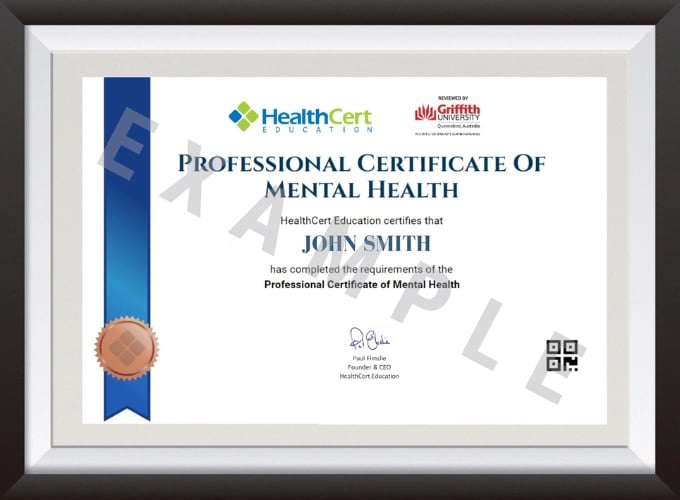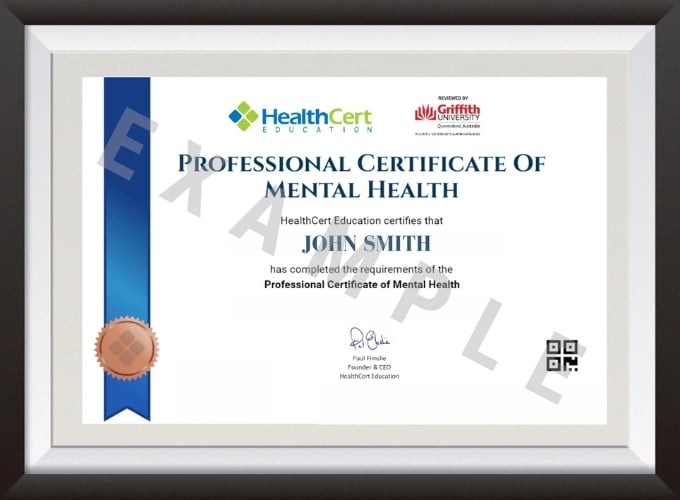

Justice on Demand: Expanding Access to Forensic Mental Health Evaluators in Arizona
The legal system has long grappled with the tricky parts of ensuring that every defendant receives a fair trial. When it comes to determining competency, the system has relied on a limited pool of certified mental health professionals. However, with the introduction of an innovative online and on-demand training program launched collaboratively by the Arizona Supreme Court, Arizona State University’s New College of Interdisciplinary Arts and Sciences, and ASU Learning Enterprise, the landscape of forensic mental health evaluation is undergoing a significant change. This change not only promises to streamline the evaluation process but also to widen access to those critical professionals who assist in maintaining justice.
This opinion piece takes a closer look at the development and implementation of this cutting-edge training program and discusses its potential benefits for both the legal and mental health communities. With real challenges such as limited availability, long waiting periods, and the difficulty of reaching professionals in remote or rural areas, the traditional model of competency evaluator training was increasingly proving to be an overwhelming bottleneck in the criminal justice system.
Modernizing Competency Evaluation: A Digital Leap for Justice
Historically, the mandatory training required for forensic mental health evaluators was delivered in person and only once every two years. This model, while tried and true over the years, came with its own set of tangled issues: limited training dates, geographical constraints, and scheduling conflicts for professionals already burdened with heavy caseloads. By moving the training online, the Arizona Supreme Court and its partners have effectively removed these barriers.
The online course is not merely a digital replica of an in-person workshop; it is a well-thought-out educational tool that addresses the fine points of competency evaluation with the advantage of on-demand access. With six comprehensive modules, the program covers ethical considerations, proper assessment practices, procedural guidance, effective communication strategies, and specific legal responsibilities within Arizona’s judicial framework. This shift to digital not only enhances accessibility but also allows participants to pace their learning according to their individual schedules.
Improving Legal and Forensic Processes: Benefits of On-Demand Training
The transformation from a biennial in-person course to a self-paced, always-available online program is a super important step forward for the legal system. The following bullet list outlines key benefits of the new approach:
- Increased Accessibility: Professionals from rural areas or those with demanding schedules can now access the training without the need for travel or rigid scheduling.
- Enhanced Efficiency: With on-demand training, evaluators can update their knowledge continually, thereby contributing to faster case processing and more accurate evaluations.
- Cost Effectiveness: Reduced need for physical resources and travel expenses makes this method more financially viable for both the court system and the professionals involved.
- Standardization: A uniform training module ensures that all evaluators receive the same high-quality guidance, reducing the risk of inconsistent application of the law.
- Adaptability: The program is structured to receive real-time feedback, allowing ongoing revisions in line with evolving state laws and advances in forensic psychology.
This modernization of the training process is a hallmark of progress in the intersection of law and mental health, affirming that digital innovation can effectively address some of the system’s most nerve-racking challenges.
Solving the Availability Conundrum: Breaking Down Barriers
One of the most significant and controversial issues in evaluating competency has been the chronic shortage of trained evaluators. As Don Jacobson, a senior special project consultant for the Arizona Supreme Court, pointed out, “We do not have enough evaluators. More cases are being dismissed when questions of competency arise, which directly impacts justice for those involved.”
This shortage is particularly problematic in rural areas where mental health resources may already be sparse. The new online training program changes the game by allowing professionals to “take a closer look” at the content and complete the necessary certification at their convenience. This flexible scheduling not only reduces the waiting time for certification but also means that the courts can now tap into a previously underutilized pool of talent, ultimately benefiting the legal process and the people it serves.
Innovative Collaboration: A Union of Legal Insight and Academic Rigor
The joint effort between the Arizona Supreme Court and ASU’s New College of Interdisciplinary Arts and Sciences is a stunning example of how academic institutions can collaborate with the judiciary to solve real-world problems. The partnership began with the launch of the Center for Forensics and Artificial Intelligence in fall 2022, setting the foundation for integrating advanced educational modules into the court’s operational framework.
According to Jennifer Albright, director of forensics and artificial intelligence at the Arizona Supreme Court, the initiative was designed to not only meet current requirements but to stay current with the ever-changing legal environment. Such proactive measures ensure that the training mirrors the actual legal expectations and forensic psychology practices used in the field today.
This collaboration highlights several key points:
- Cultural Integration: By merging legal expertise with academic research, the program benefits from a multidisciplinary approach, fostering a richer learning environment.
- Mutual Benefit: Both the courts and faculty members share their unique insights, ensuring that the training remains practical and theoretically sound.
- Community Focus: Emphasizing continual learning and public service, the program aims to build lasting relationships and support a wide range of community needs.
Online Training Versus Traditional In-Person Workshops: A Comparative Table
Understanding the differences between the old and new models can help highlight the benefits of digital transformation in legal education. The table below outlines key differences between traditional in-person workshops and the new online on-demand course:
| Aspect | Traditional In-Person Workshops | Online On-Demand Training |
|---|---|---|
| Schedule | Offered once every two years | Accessible year-round |
| Accessibility | Limited by geographic distance and fixed dates | Flexible and accessible from any location |
| Cost | Higher due to travel and venue expenses | Reduced expenses, more budget-friendly |
| Feedback Process | Delayed and less frequent | Real-time updates and continual improvements |
| Adaptability | Slow to update with changing regulations | Easily revised and adjusted to reflect current law and forensic practices |
This direct comparison illustrates how the digital approach not only bridges long-standing gaps but does so in a way that is both efficient and considerate of the evaluators’ professional constraints.
The Impact on Judicial Integrity: Ensuring Fair Trials
At its core, the competency training for mental health evaluators is about protecting the rights of defendants. A person who does not fully understand the charges laid against them—or the legal process involved—cannot meaningfully participate in their defense. This reality is a serious legal issue, with real consequences for millions of lives.
When evaluators are sufficiently trained, the assessments they perform become a critical element in ensuring a defendant’s ability to stand trial. As a result, the judicial process operates more efficiently and humanely, reducing the likelihood of unnecessary dismissals or appeals based on flawed competency assessments. The online training initiative, therefore, plays a central role in upholding the integrity of the legal system by standardizing evaluation methods and ensuring high-quality, consistent assessment across the board.
Key Modules: Building Blocks of a Comprehensive Training Program
The certification course is composed of six detailed modules, each designed to cover a wide array of legal and forensic subjects essential to competency evaluations. The following bullet list outlines the core components of the training:
- Ethical Considerations: Exploring the moral challenges and professional ethics required when evaluating competency.
- Assessment Practices: Offering a deep dive into the specific techniques and methodologies used in forensic evaluations.
- Procedural Guidance: Explaining the step-by-step process needed for legally sound competency assessments and evaluations.
- Communication Strategies: Providing instructions on how to effectively communicate complex legal information to laypersons and legal professionals alike.
- Legal Responsibilities: Highlighting the state-specific laws and judicial rules that evaluators need to adhere to in Arizona.
- Case Studies and Real-World Applications: Analyzing previous cases to understand the practical application of training in real legal scenarios.
Each module is crafted with care, ensuring that every fine detail is covered so that evaluators emerge well-prepared to handle the challenging bits of forensic assessments. By engaging with real case studies and practical exercises, the course offers a balanced mix of theory and applied knowledge that is critical for legal professionals.
Adapting to Changing Legal Standards: Flexibility in Continuous Learning
One of the standout features of the online training program is its commitment to keeping the curriculum aligned with evolving legal standards and forensic practices. In a system where law and mental health are constantly in flux, staying current is a must-have element of training. The program is designed for continual evolution, with regular updates based on real-time participant feedback and changes in state guidelines.
This proactive approach means that professionals do not have to worry about outdated information or legal protocols that no longer apply. Instead, they are provided with a dynamic learning environment where adjustments are made characteristically through:
- Ongoing Feedback: Surveys and feedback options allow participants to suggest changes and highlight areas that might need more clarification.
- Legal Updates: The curriculum is revised periodically to reflect any changes in state legislation or judicial policy.
- Expert Collaboration: Continuous involvement of legal and academic experts who monitor emerging trends in forensic psychology and mental health law.
This commitment to keeping the material fresh not only reassures evaluators but also upholds the legal system’s credibility by ensuring that all assessments are based on the latest and most accurate legal standards.
Community Impact: Bridging the Gap Between Legal Systems and Mental Health Services
The benefits of the revamped training program extend far beyond the courtroom. By creating easier access and flexible learning options, the initiative indirectly strengthens the broader system of public justice and mental health services in Arizona. Community members—especially those in remote or underserved areas—stand to gain significantly from the positive ripple effects of a more well-equipped evaluator workforce.
A few of the direct impacts on the community include:
- Faster Processing Times: With more evaluators available, competency evaluations can be completed more quickly, leading to faster resolution of legal cases.
- Improved Accuracy: Standardized and thorough training means evaluations are more consistent, reducing the risk of misinterpreting a defendant’s mental capability.
- Enhanced Trust: A transparent, accessible system builds public confidence in the legal process, reinforcing the idea that justice is both fair and reachable.
- Broader Outreach: Digital training formats encourage more professionals to consider certification, which can help build a larger network of evaluators spread across the state.
In addition, by aligning the program with community needs, the initiative serves as a reminder that modern technology can be harnessed to benefit society as a whole, an important consideration in an era driven by rapid digital change.
Online Learning: Addressing the Tangled Issues of Scheduling and Access in Rural Areas
One of the major challenges confronting traditional training programs has been the rigid scheduling, which often forced professionals, especially those residing in rural regions, to choose between career advancement and logistical constraints. The nerve-racking task of planning travel, arranging time away from work, and coordinating with family obligations meant that only a fraction of those eligible could benefit from the training at any given time.
The online course effectively tackles these limitations by eliminating the need for physical presence. Evaluators can now complete the modules when it suits them best, whether that’s late at night after courtroom duties or early in the morning before the day’s proceedings begin. This flexibility makes it significantly easier for a diverse range of professionals to get certified, ensuring that no one is left behind due to geographic or scheduling limitations.
Challenges Ahead: Ensuring Quality, Engagement, and Continual Improvement
While the benefits of an online, on-demand course are many, it is important to recognize some of the potential challenges that come with transitioning from a traditional model to a digital one. The quality of online education can sometimes be variable, and maintaining engagement in a self-paced format requires extra effort both from instructors and learners. There are a few key challenges that need continuous monitoring:
- Maintaining Consistent Quality: Ensuring that every participant receives the same level of thorough instruction as they would in a live setting.
- Interactive Engagement: Developing interactive elements that keep learners engaged and provide opportunities to ask questions and participate in discussions.
- Technological Barriers: Addressing potential issues such as internet access or digital literacy among some evaluators.
- Feedback Integration: Continuously collecting and analyzing user feedback to further refine and enhance the course content.
These challenges, however, are not insurmountable. With dedicated efforts from ASU, the Arizona Supreme Court, and ASU Learning Enterprise, strategies are already being implemented to ensure a robust learning platform. Regular updates, interactive multimedia content, and community forums are among the many tools being explored to keep the training both current and compelling.
Legal Innovation: Building a Model for the Future
The online training program is not simply a solution to an existing problem—it is an important step towards reshaping how legal processes interface with technological innovation. The move recognizes that as laws evolve and mental health assessments become more nuanced, the training programs for those involved must also adapt to these changes. It sets the stage for a future in which legal professionals and mental health experts can work together more efficiently and effectively.
The initiative stands as proof that when legal institutions embrace innovative approaches, there is potential for rethinking established procedures in ways that are practical, accessible, and forward-thinking. By investing in a model that emphasizes continual learning and technological integration, the Arizona Supreme Court and its partners are demonstrating a commitment to both the law and the people it serves.
Reflections on a Changing System: Personal Perspectives on Access to Justice
It is clear that the transition to online training for forensic mental health evaluators is more than just an adjustment in delivery—it is a fundamental shift in the way our legal system operates. As someone deeply involved in and passionate about the law, I see this development as a critical convergence of technology, legal insight, and public service.
From my perspective, having the capacity to “get into” the details of how competency evaluations are conducted is essential for ensuring fairness in our judicial system. When evaluators are well-trained and consistently updated on both legal expectations and forensic practices, the entire process becomes more reliable. This improvement benefits not just the professionals directly involved but enhances the overall trust in our legal system. After all, the goal is to ensure that every defendant has the right to a fair trial, and that starts with ensuring they fully understand the charges and can participate in their defense.
The digital transformation of this training process is one of those cases where practical innovation meets the pressing needs of modern society. It simplifies the complicated pieces of scheduling, travel, and outdated content while also addressing the hidden complexities of engaging a diverse workforce spread across a vast state.
Long-Term Prospects: Paving the Way for Continuous Legal Education
Looking ahead, the success of this initiative could very well serve as a model for future legal and forensic training programs, not only in Arizona but across the nation. Here are some future prospects and expected impacts of adopting the online training model:
- Wider Adoption: Other states and jurisdictions might adopt similar digital training programs, resulting in a more standardized approach to mental health competency evaluations nationwide.
- Enhanced Professional Networks: As more evaluators join the field, there will be greater opportunities for collaboration, mentorship, and the exchange of best practices.
- Reduced Backlogs: Quicker training and certification cycles can help reduce the backlog in competency evaluations, leading to swifter judicial processes and a fairer distribution of justice.
- Continuous Learning Culture: The program reinforces the value of continual professional development, encouraging evaluators to remain updated on evolving legal standards and forensic techniques.
Ultimately, ensuring that mental health professionals have ready access to the most current information is key to protecting the interests of both defendants and the legal system itself. By rethinking traditional systems and embracing online learning, we are taking concrete steps towards a future where justice is administered not through outdated practices but through modern, efficient, and accessible methods.
The Role of Technology in Advancing Legal Training
When we consider the role of technology in reshaping professional training, it becomes evident that digital platforms offer tangible advantages over traditional classroom setups. The legal field, often seen as conservative and resistant to rapid changes, is now witnessing a transformation where technology acts as an enabler rather than an obstacle.
With this online training program, legal professionals are not just passive recipients of content—they are active participants in an evolving educational journey. Here are some areas where technology plays a key role in improving the training process:
- Adaptive Learning: Customized modules that adapt to individual learning speeds ensure that each professional covers all the necessary material thoroughly.
- Multimedia Engagement: Interactive video lessons, animations, and quizzes help break down the confusing bits of legal theory into digestible and memorable segments.
- Instant Access to Resources: Digital libraries and real-time updates ensure that evaluators can always refer back to the latest legal guidelines and case studies.
- Online Forums and Peer Interaction: Digital platforms provide a space where professionals can discuss tricky parts of the training, share experiences, and offer peer support.
These technological benefits ensure that the evaluators are not only well-prepared but also continuously engaged in their learning journey. This engagement is critical for building a resilient and adaptable workforce capable of meeting the evolving challenges in forensic evaluations.
Policy Implications: Strengthening the Backbone of Forensic Evaluations
The shift to online training also has broader policy implications that extend into the judicial system. By standardizing the training process across the board, the initiative helps build a more robust framework for competency evaluations. For policymakers, this move highlights several important trends:
- Regulatory Flexibility: Digital platforms can be more readily updated to reflect changes in legislation and judicial expectations, offering a responsive tool for continuous compliance.
- Resource Optimization: Reduced overhead costs associated with in-person training allow government bodies to allocate resources more effectively to other pressing areas in the legal system.
- Enhanced Accountability: A standardized, digital training module creates an audit trail through which training quality and compliance can be monitored and assessed over time.
- Improved Public Trust: When the system itself evolves to meet modern challenges, it sends a powerful message to the public that justice is not static but is continuously improved for fairness and efficiency.
These implications reinforce the idea that legal innovations like the online training program are not merely administrative improvements—they are fundamental shifts that strengthen the entire structure of our justice system.
Looking Forward: The Future of Competency Evaluations in an Evolving Legal Landscape
As the legal community continues to adapt to a world in which technology plays an ever-more central role, we can expect to see further integration of online learning into other facets of legal training and judicial processes. The model introduced by the Arizona Supreme Court and its academic partners represents a pivotal moment: one where on-demand access and self-paced learning replace rigid, outdated systems.
This evolution is likely to spur discussions on how other legal procedures might benefit from digital transformation. Some possible future directions include:
- Expanded Certification Programs: Developing additional courses for other specialties within forensic psychology and law enforcement could further enrich the available expertise in the system.
- Integration with Virtual Courtrooms: As remote court proceedings become more common, integrating online evaluator training with court technology could streamline several related processes.
- National Standardization: Success in Arizona might prompt a national push towards standardized digital training protocols for forensic evaluators, ensuring uniformity across state lines.
- Interdisciplinary Collaborations: Bringing together experts from technology, law, and mental health in more unified training platforms could generate innovative solutions to ever-changing legal challenges.
The future of competency evaluations appears promising. With a more accessible, affordable, and current training model, both legal professionals and the broader community can look forward to a judicial system that is as adaptive as it is just.
Conclusion: A Promising Step Towards a Fair and Efficient Justice System
In summary, the launch of an online, on-demand competency evaluation certification program has the potential to revolutionize the way forensic mental health evaluations are conducted in Arizona. By addressing the hidden problems associated with traditional training—such as limited availability, scheduling constraints, and outdated content—this innovative initiative paves the way for a more efficient, reliable, and fair legal process.
It is clear that this digital transformation is more than a mere change in delivery format; it represents a commitment to ensuring that every defendant receives the support necessary to understand and engage with legal proceedings. When mental health evaluators are equipped with the super important tools and knowledge provided by such state-of-the-art training, the entire judicial system benefits.
This initiative is a testament to the value of collaboration between academic institutions and the judiciary—a partnership that holds tremendous promise for the future of legal education and the broader enforcement of justice. As we watch this model evolve, one can only be optimistic that similar innovations will continue to emerge, paving the way for a justice system that is truly accessible, responsive, and fair to all.
For legal professionals, mental health evaluators, and policymakers alike, the message is clear: by embracing technology and rethinking traditional frameworks, we can overcome the nerve-racking challenges of the past and build a future where the right to a fair trial is not just an ideal, but a readily achievable reality.
Originally Post From https://news.asu.edu/20250522-law-journalism-and-politics-justice-demand-asu-arizona-supreme-court-launch-online-mental
Read more about this topic at
Justice on Demand: True Crime in the Digital Streaming …
Justice on demand: true crime in the digital streaming era


